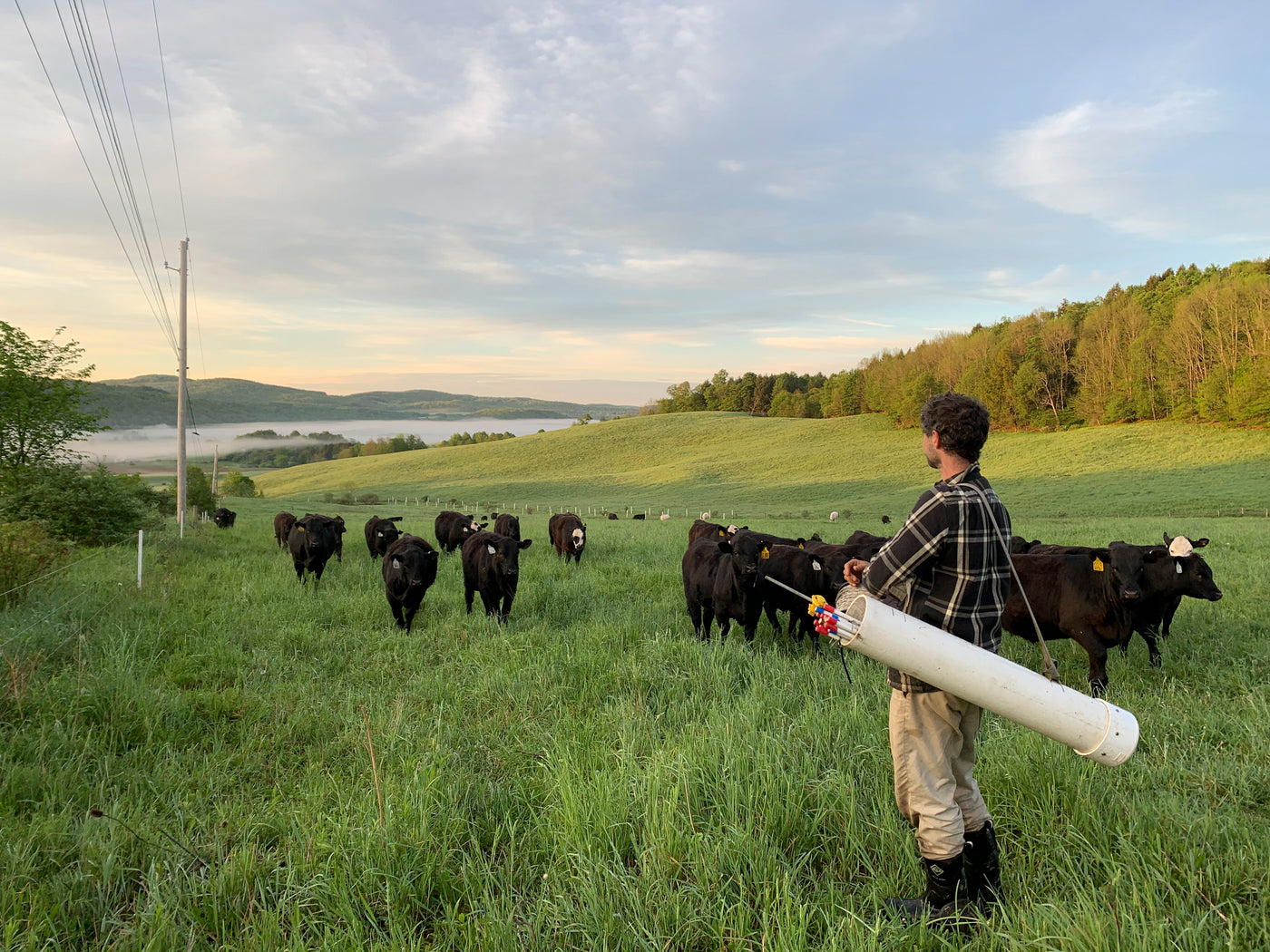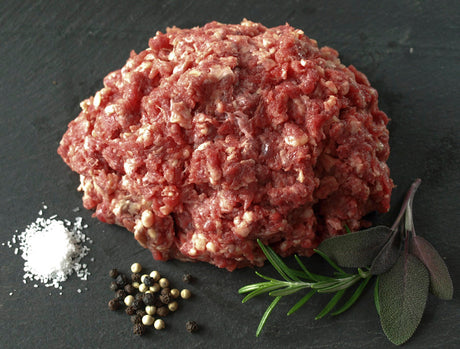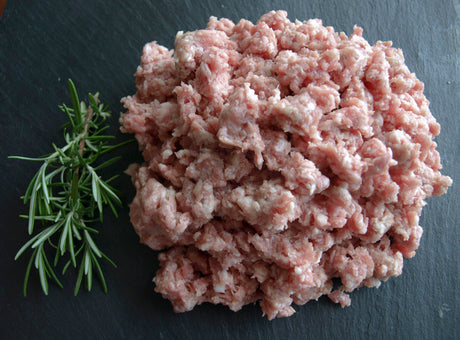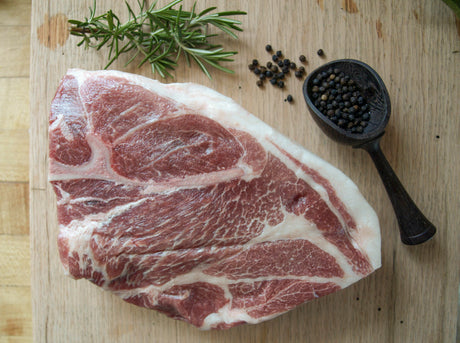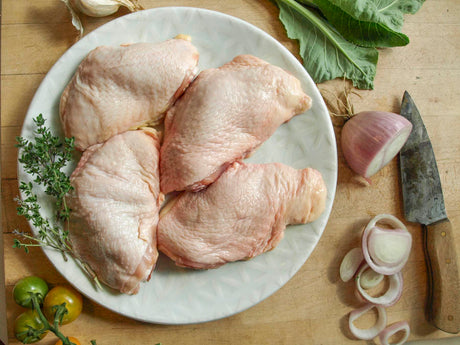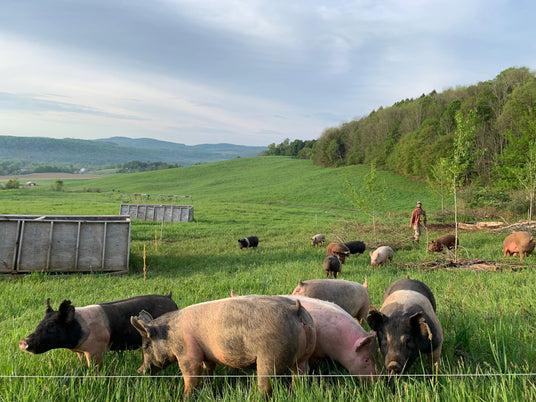
What about pastured?
Most smaller, eco-farm type enterprises do use the word 'pastured', typically in relation to pigs and poultry, but occasionally with beef and lamb too. In order to meet the modern customer's expectation of how meat should taste, both pigs and poultry must be supplemented with more digestible feed than can be found in the roughage of grass. Typically this supplement is grain based, but occasionally an enterprising farmer finds a human food discard stream that is not grain and can meet nutritional needs for hogs and/or birds (expired dairy is one possibility). While they live on pasture, pigs and poultry raised outside are called, "pastured", but not "grass fed" because they are given a supplement of some sort. We estimate that during finishing our pigs eat roughly 50% of the volume of their feed as pasture and 50% as grain ration. Meat chickens grow so fast they get more than 90% of their feed from the grain bin. But even though grass fed chicken isn't possible, Hens that lay eggs are more competent foragers than meat birds, but they still get 80% or more of their meals from the grain trough.

